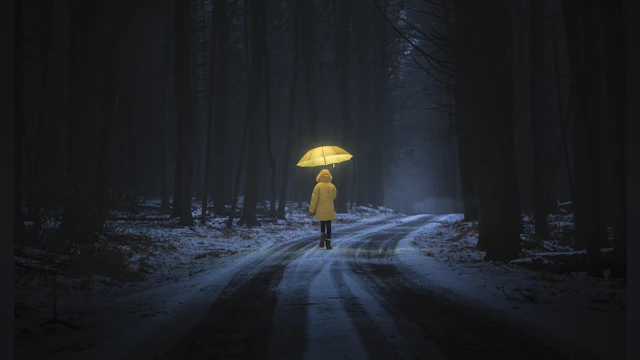This post is presented in collaboration with Active Minds, the national organization dedicated to empowering students to speak openly about mental health.
February 20, 2018 - One night, after a difficult first semester at the University of Pennsylvania, Madison Holleran sat down at her computer and researched a few clubs to get involved in at school. One of them was Active Minds. Sadly, Maddy never made it there. Just weeks into her second semester, Maddy died by suicide.
In the recently published book What Made Maddy Run, in a chapter called “Active Minds,” ESPN writer Kate Fagan recounts her interview with the students Maddy would have likely met had she gone to an Active Minds meeting at Penn. In reading the conversation between Fagan and the Active Minds students, including Kathryn DeWitt, who happened to intern for me for a semester at our national office, I felt overcome by sadness and a profound loss. Because I know exactly what Maddy would have found had she made it there.
As the students shared in the book, many of them had experienced similar struggles Maddy may have felt– anxiety, depression, confusion, loneliness – and all made it to the other side. Many of them did so at least in part because of the community they had found with each other, something Maddy sadly missed out on.
More than anything, I wish Maddy had made it to us.
If she had, she likely would have been welcomed in by peers who knew exactly what she was going through, folks who would have told her:
You are not alone.
Mental health issues are common among college students. It is estimated that one in five adults lives with a mental health disorder. All over the country, students are not only seeking and finding help; they’re advocating for change and sharing their mental health stories with their peers so that no student feels alone. If you’re struggling, know that in Active Minds there is a family waiting for you and a place for you to belong.
You’re more than your grades or your latest personal record. You’re more than what your social media page says about you. Or even how you feel about yourself in this moment.
In short, you’re more than what you produce. Maybe, like Maddy, you’re having to make some tough decisions that were strongly tied to your identity, like being a perfect student and excelling athlete. If so, know that you don’t owe anything to anyone except maybe to yourself. That is, to give yourself the room to make mistakes, let go of anything that doesn’t feel right, admit you’re struggling, and ask for help. It’s OK to not be OK. You have permission to be human.
Any time’s a good time to seek help. And, help is always available.
When Maddy made her first counseling appointment, the wait time was two weeks and she wasn’t sure if her case was important enough to wait that long. Yet, she made the appointment and waited anyway. After her appointment came and went, she told family that it wasn’t at all what she was expecting and that it didn’t really get to the root issues she was experiencing.
If I could, I would tell Maddy that it can sometimes take a while to find the right treatment or therapist that are the right match. In the meantime, there is free, 24/7, confidential support for anyone in crisis at the Crisis Text Line (text BRAVE to 741741) and National Suicide Prevention Lifeline (1-800-273-8255). You can text or call those numbers any time.
Perhaps you’re not sure if your struggle is severe enough to seek help. Or maybe you’re not even sure what you’re experiencing. Know that there is help and there is hope for everyone. There are many places to get advice, support and treatment to get you feeling better. Seeking help is worth it. Mental illness is treatable and you deserve to get better.
Recovery takes time but it’s possible.
More than anything, I wish Maddy could have gone to that Active Minds meeting and met the students there who have survived the same struggles and are now thriving together. They would have shared their own stories of survival. They would have likely helped Maddy see that while people with mental health disorders have good days and bad days, or good months and bad months, most experience significant reduction of symptoms and improved quality of life with the right ongoing care. Recovery is possible.
The world needs you here.
Whatever it is that you are going through, there is hope and I promise it gets better. It will stop, you will feel better, you will get yourself back. The world needs you here. Stay with us.
This year, more than ever, as we approach Suicide Prevention Month (September 10 – October 1) and every other day of the year, our hope is that students who are struggling will hear loudly and clearly from their peers, like the brave and compassionate Active Minds students at Penn, that recovery is possible.
I think we can all see a little bit of ourselves in Maddy’s story. I hope that those who read it and perhaps see a bit of their own journey in it will be emboldened to share their story of hope and recovery with someone else. You never know who may need to hear it.
